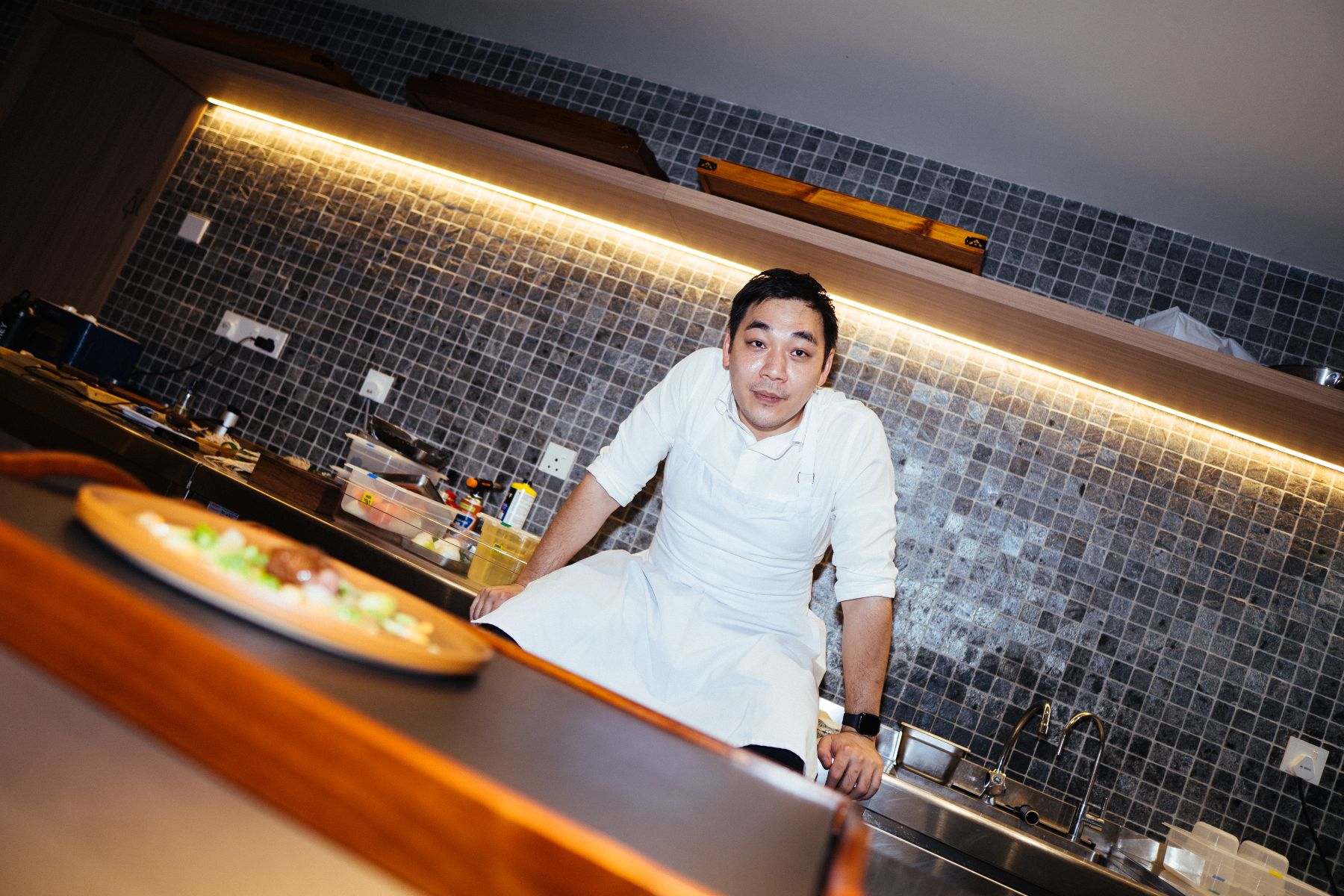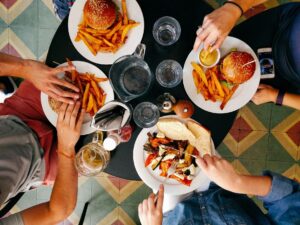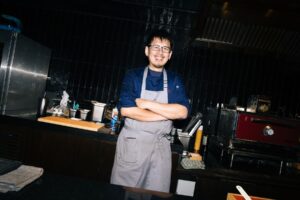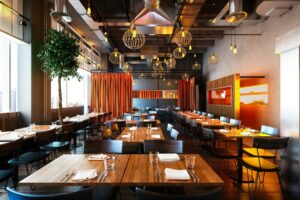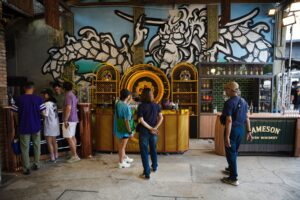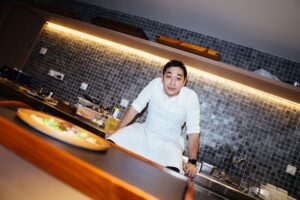Nothing about Restaurant Shu KL is quite what you’d expect from a modern fine dining restaurant. For starters, its location on Level 8 of the Annexed Block in Menara IMC along Jalan Sultan Ismail is rather obscure and isolated from other dining or retail outlets; its vantage offering a subtle retreat from the city’s pulse, while still remaining connected to the heart of the metropolis.
Behind the contemporary wooden doors of its entrance, warm, gentle lighting and wood-toned interiors cradle diners in an atmosphere of elegance. A prominent calligraphic rendering of the Chinese character “Shu” – an homage to Chin’s mother – hangs gracefully on one wall, setting a personal and emotional anchor to the space.
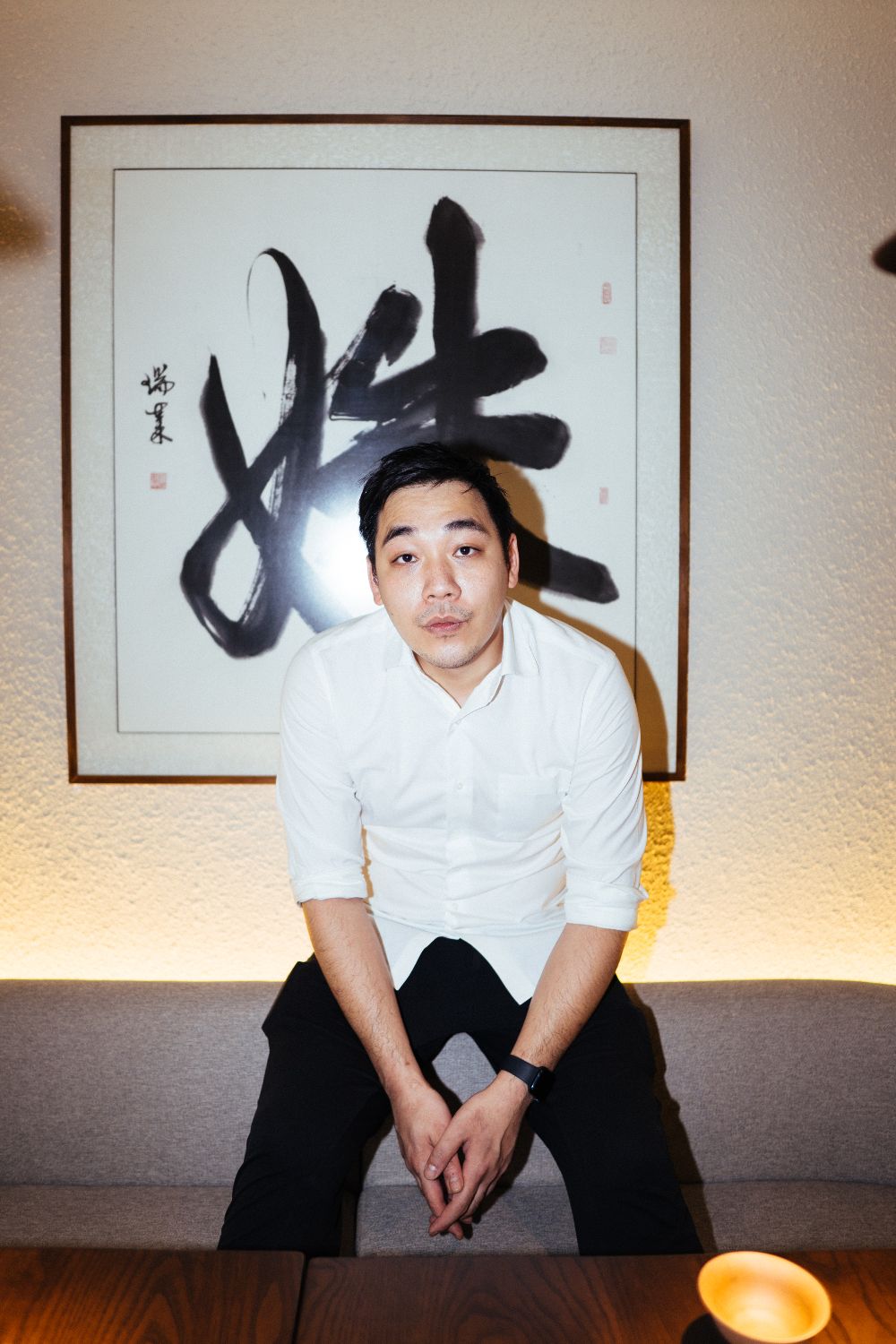
We’re greeted by a two-man show in the open kitchen, with chef-patron Chin Wong and sous chef Tee Li-Syuen busy prepping for the evening as Shaun Simon, the restaurant manager, welcomes us in. It’s no wonder why the ‘80s hit ‘Just The Two of Us’ comes to mind when we ask Chin how he would describe the restaurant in a theme song. This sense of intimacy extends to the service too, where every guest is thoughtfully introduced to each dish and the inspiration behind it.
At the heart of Shu’s cuisine is an exploration of the evolution of culture, heritage, and identity – rooted in his experiences as part of the Chinese diaspora. From his early years staging in Singapore and Bangkok to working under renowned mentors like Riley Sanders, Chin’s own travels have shaped how he sees food’s role in telling stories at Restaurant Shu KL.
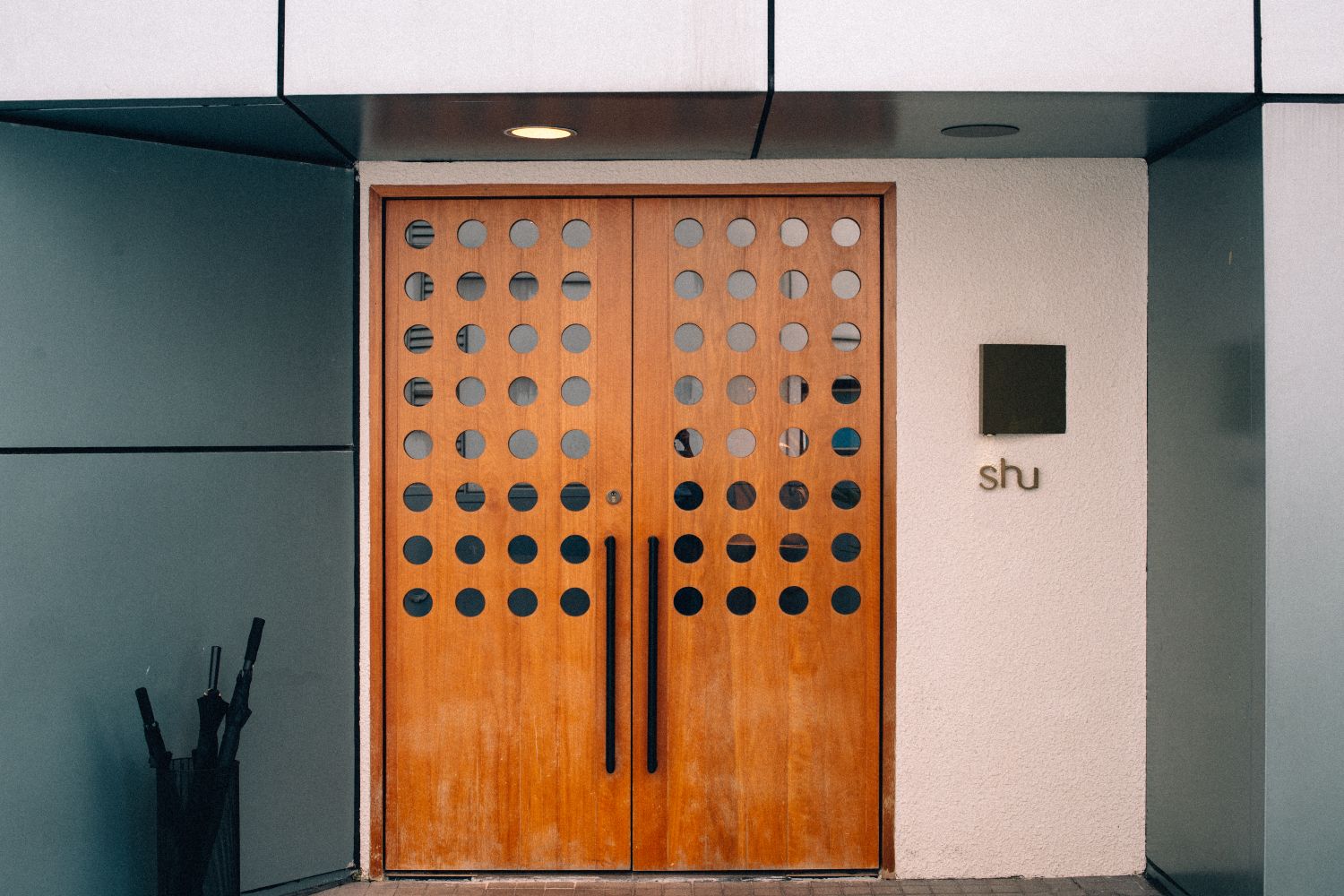
Given the ever-evolving narratives that follow Chinese migration and assimilation into diverse cultures around the world, Chin has been constantly reinventing the menu since its opening in October 2023. As we sit down for a taste of its latest ‘Identity’ menu, he tells us more about his culinary journey, the inspiration behind Shu, and his thoughts on the future of Malaysia’s dining scene.
View this post on Instagram
When and how did your culinary journey begin?
Chin Wong (CW): It began in 2013. I had heard that a couple of guys from the Fat Duck’s R&D kitchen had set up shop in Singapore, so I knocked on their doors and offered to work for free to learn, and here we are.
Walk us through your journey from your first kitchen job to where you are today.
CW: I started out at a place called Bacchanalia in Singapore, then helmed by Ivan Brehm who now runs Nouri. Then, I bounced around a bit staging at Nahm, Bolan, Tippling Club, and Upstairs at Mikkeller, before eventually helping to open Canvas in Bangkok. I went back to Singapore to work at Tippling Club for a bit before returning to Canvas to help with the push for our first Michelin star.
I was headhunted to run a kitchen at Six Senses Singapore before leaving to work for Christopher Kostow in Shenzhen. The pandemic happened, so I ended up in Malaysia doing pop-ups and a short stint in a resort in Thailand before finally making Shu happen.
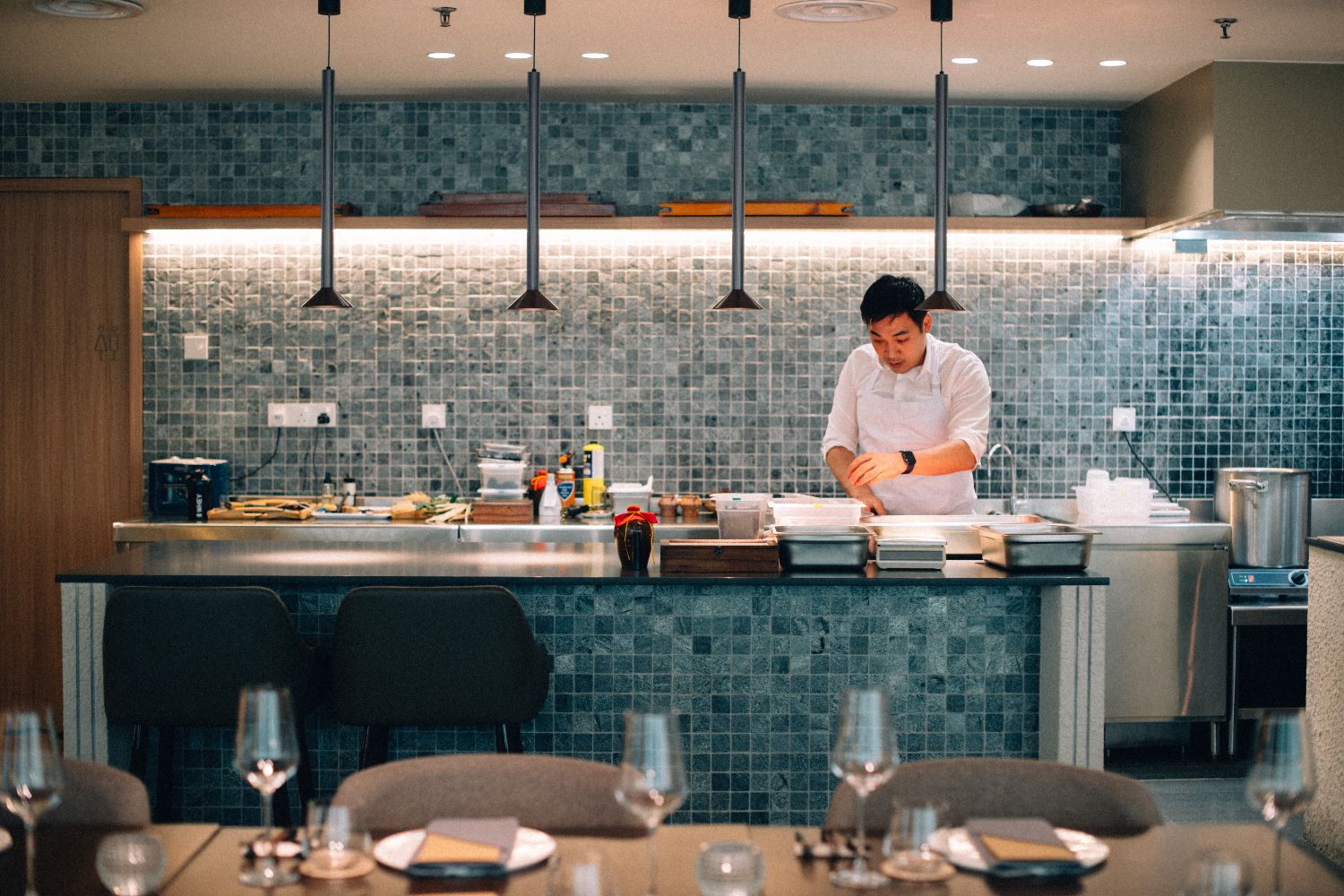
How did the idea to start Restaurant Shu come about?
CW: It was actually when I was in Shenzhen, eating soy-braised duck. It was a dish I was very familiar with, having eaten it growing up, but it tasted so different in China. They used different spices. This led to a question of ‘why?’, and a realisation that I knew nothing of my own culture.
Why does a soy-braised duck taste different in China, Thailand, Hong Kong, Singapore, and Malaysia? What led different groups of the Chinese diaspora to cook what I would consider a foundational dish so differently? Shu has progressed to become a place where I seek my own identity, and question my own place in the world via the medium of food as we’ve gone along, but yeah, that’s how it started.
Describe the culinary ethos of Restaurant Shu KL.
CW: I’d say everything we do has a purpose. Nothing on the plate is done without a reason, each dish tells a story of our question of what the diaspora experience is. That sense of purpose extends to our hospitality as well. We strive to be better every day, and to give our guests (not customers) the best experience we can.
“Shu has progressed to become a place where I seek my own identity and question my own place in the world via the medium of food.”
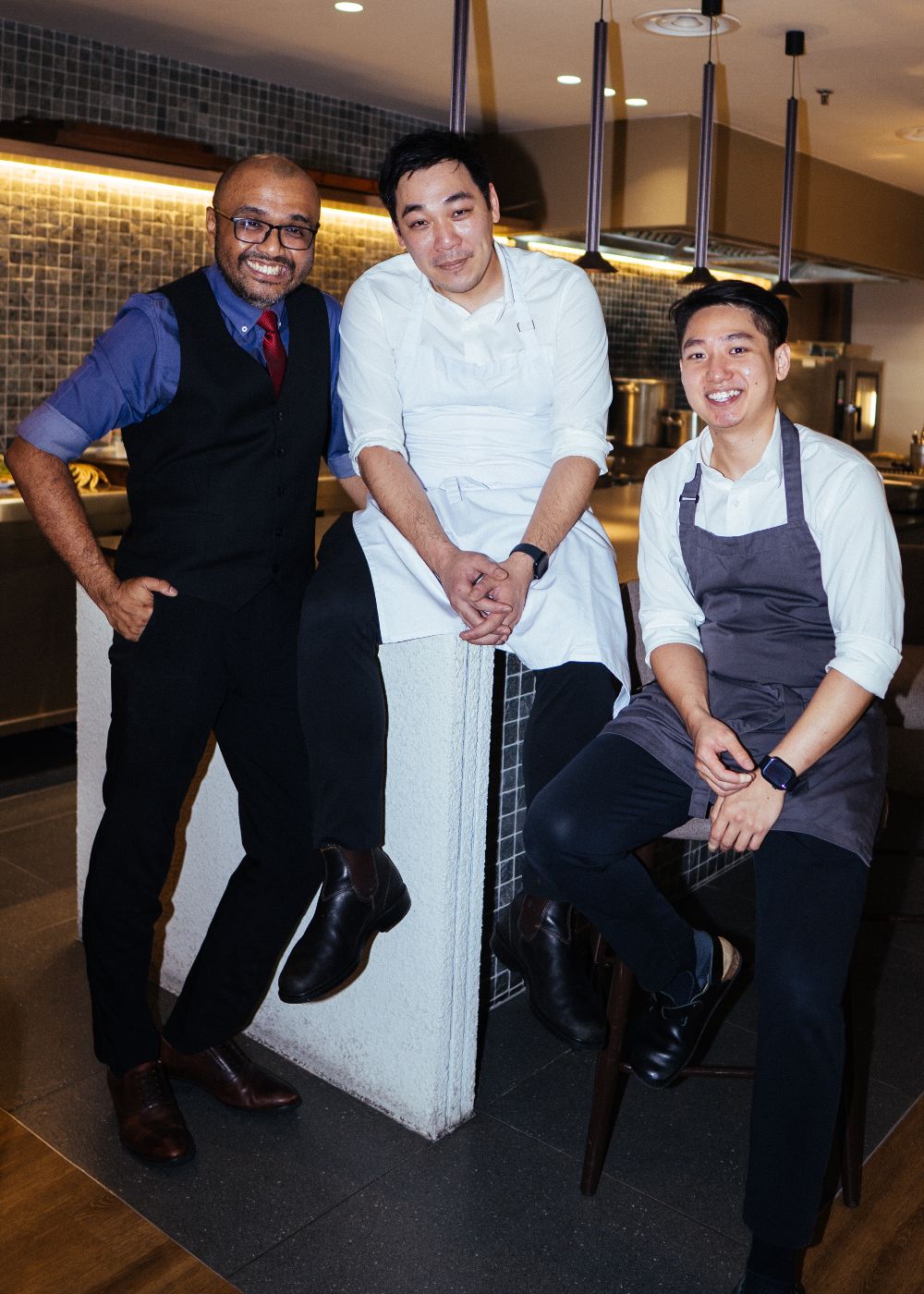
What’s one dish on the menu that best tells your story as a chef, and why?
CW: For this menu, it’d be our bread. It’s built on the idea of rice being our staple, but also reflects my training, which is ingredient-driven cooking. We try to move past the normal uses and perceived value of something, and try to see it as what it is – an ingredient – then ask ourselves, “What is possible with it?”
How do you approach building a menu? What’s your creative process?
CW: I suppose with each menu it’s different. With the last menu, “Staple”, we looked at rice, and the myriad uses that were possible with it. With this menu, “Identity”, we asked, “What makes Chinese food, Chinese?” So, we took ingredients, techniques, and/or mouthfeels that we thought were pillars of Chinese cuisine and explored those to see what dishes we could make with them in mind.
What’s the wildest, most unexpected thing you’ve cooked (so far)?
CW: Man… There’s a lot. Working in Thailand, where we worked with foragers, hunters, there are some pretty weird fruits, vegetables, and meats that we’ve messed around with. Cow udders, penises, a whole of offal, exotic fish and animals, wild fruit, insects, larvae – you name it.
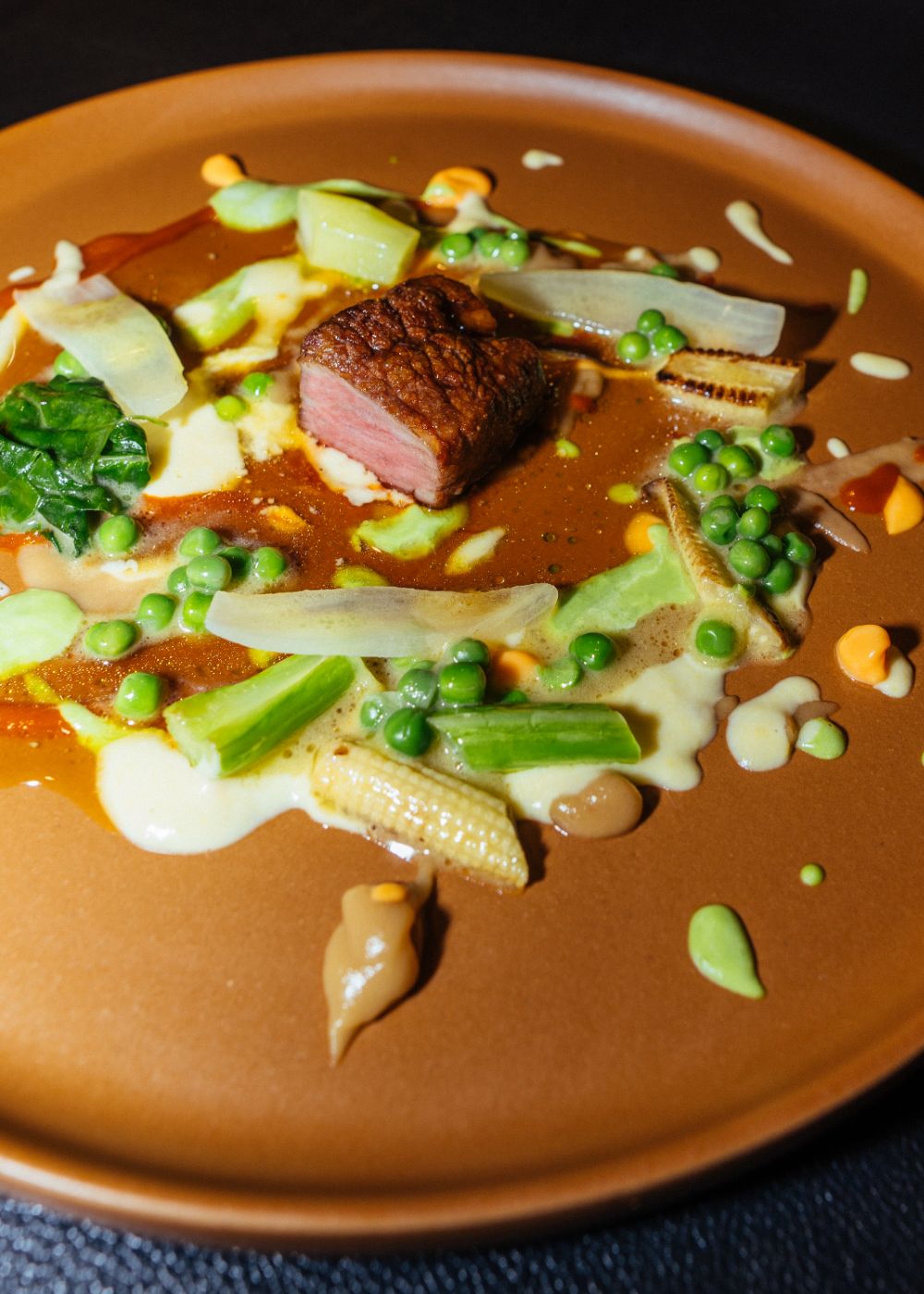
What’s the biggest misconception people have about being a chef?
CW: That passion is the be-all and end-all. Passion is nice to have, but discipline is what matters. No matter how passionate you are, there will be days that you’ll be tired, stressed out, having a bad day, or just plain not feeling it. The discipline to do everything right, no matter how you’re feeling or how little motivation you have; the discipline to show up on time everyday – that’s what matters the most.
“Passion is nice to have, but discipline is what matters.”
What’s a moment in your career that challenged you the most?
CW: Now [laughs]. Opening a restaurant as a chef-owner is very different from being a chef/cook. The skillsets required are very different from what we were trained for as a cook.
How do you see the local restaurant industry evolving in the next five years?
CW: I think Malaysia’s industry is at a point where it could go many ways, but I’m excited to see what talent (and friends) like Yavhin (Nadodi), Shaun (Hide), Jack (Chipta), Mui (Kala), and Han (Bref) will do. They’re all extremely talented, and I’m sure they’ll drive the industry forward in the years to come.
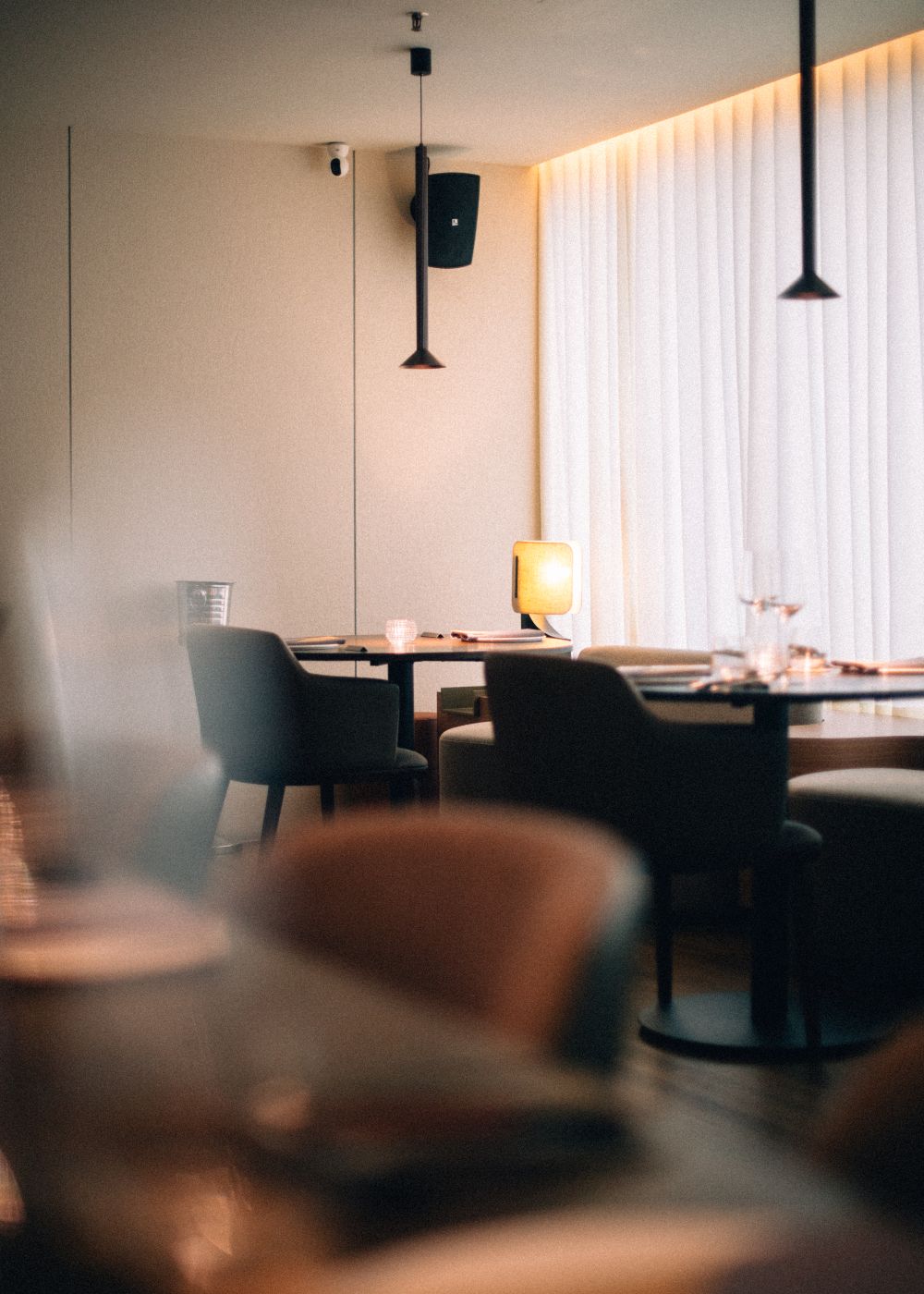
Follow Chin Wong (@chinisacook) on Instagram for more on his culinary journey or visit Restaurant Shu KL (@restaurantshukl) for a taste of his interpretation of Chinese diaspora cuisine.
Restaurant Shu KL
Address: Level 8, Annexed Block, Menara IMC, 8 Jalan Sultan Ismail, 50250 Kuala Lumpur
Opening hours: 6pm – 11pm, Tuesday to Saturday
W restaurantshu.com | F Restaurantshukl | I @restaurantshukl
Read more F&B stories here.
Photography: Imran Sulaiman
Videography: Khairul Irsyaduddin


